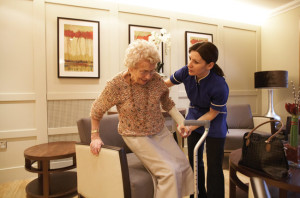
Credit: health.usnews.com
Our Tip of the Week: As the baby boomer population ages, many people in their 60s are caring for elderly parents in their homes. They provide financial assistance, help with daily activities, run errands, consult with healthcare providers and generally assist in their parents’ care.
Yet at the same time, many of these well-meaning caregivers fail to provide for the care of their aging parents while planning their estates. They believe, often incorrectly, that their parents will be the first to die. Sadly, this is not always the case.
How-to Suggestion: If you are responsible for the care of one or both of your parents, consider what will happen to them in the event of your death. Do you have siblings or other relatives who would be willing to take over for you and welcome your parents into their homes? If you have not had this conversation with your family, the time to do so is now. Formalize any decisions you come to in a written document and append it to your will.

Credit: chollamedicalgroup.com
If there is no one else to care or your aging parents, talk with them about where they might go in the event of your death. Do they have sufficient assets to pay for long term care? The average rent on a one-bedroom apartment in an assisted living facility is about $3,500 per month. If your parents can’t afford this expense, you may need to make provisions for their care in your will.
If neither you nor your parents can afford long-term care, Medicaid will pick up the cost of your parents’ care. However, they will need to liquidate most of their financial assets before Medicaid will step in. Alternatively, if one of your parents is a veteran of the Armed Forces, assisted living may be covered by the federal Non-Service Connected Improved Pension Benefit with Aid and Attendance program, which is administered by the Veterans’ Administration. This program pays a maximum benefit of $2,085 a month for married veterans, $1,759 for single veterans and $1,130 for a surviving spouse.

 Our Weekly Tip: Provide for Aging Parents in the Event of Your Death
Our Weekly Tip: Provide for Aging Parents in the Event of Your Death


 First the Wealth Gap, Now the U.S. Has a Growing Health Gap
First the Wealth Gap, Now the U.S. Has a Growing Health Gap
 How to Comfort A Dying Loved One
How to Comfort A Dying Loved One















